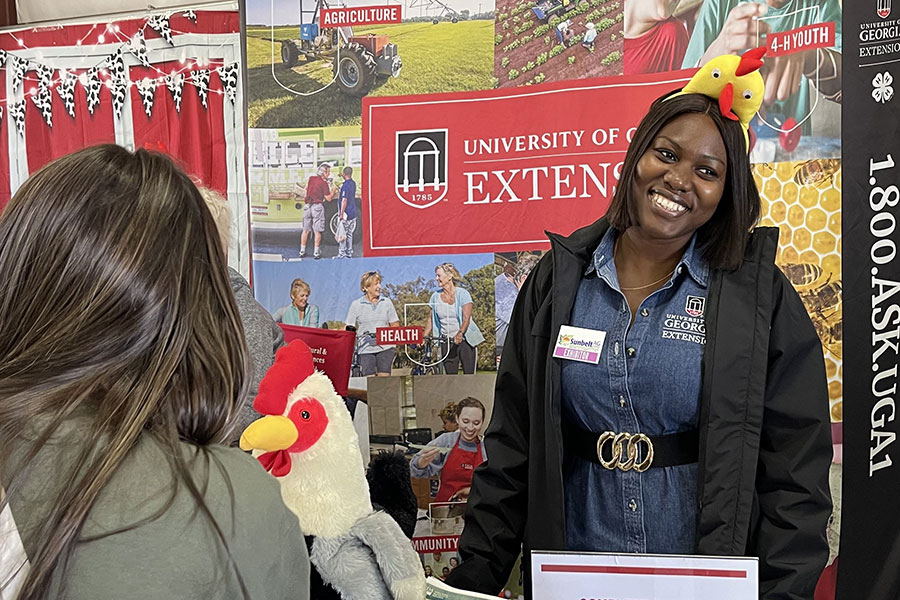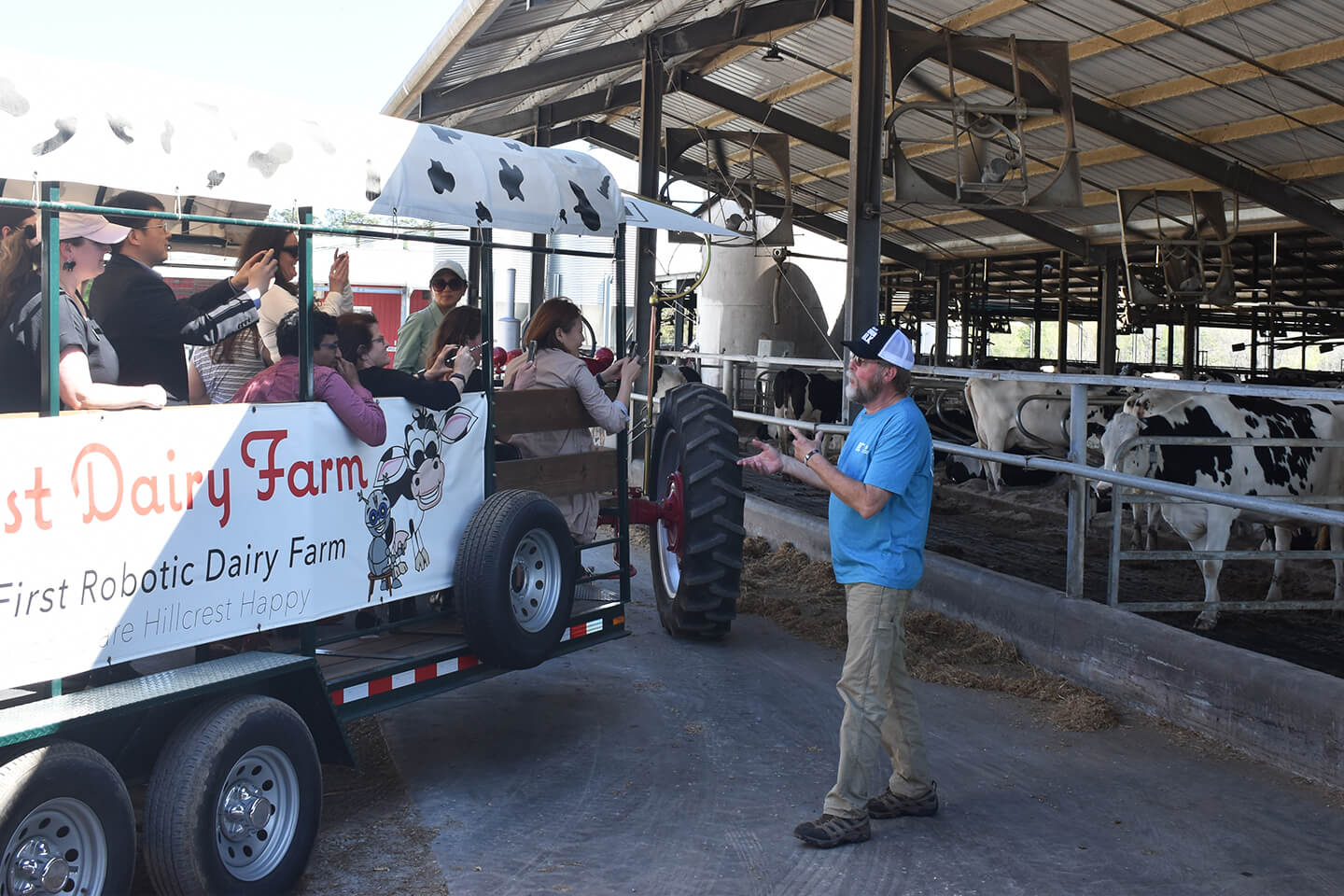
Over the next three years, researchers in the University of Georgia’s Department of Agricultural Leadership, Education and Communication aim to transform undergraduate education in agricultural and environmental sciences by integrating systems thinking — an approach that encourages students to see the bigger picture by understanding how different components within a system interact and influence one another.
This method moves beyond traditional, linear teaching models that often focus on isolated problems and solutions. Through a project titled “Integrating Systems Thinking into the Land-Grant Classroom: STEPS toward a Sustainable Future,” the team hopes to reshape the way future agricultural professionals approach problem-solving.
Grant supports educational innovation
Led by principal investigator Kevan Lamm, an associate professor in the College of Agricultural and Environmental Sciences, the project team has been awarded a $733,000 Higher Education Challenge Grant from the U.S. Department of Agriculture’s National Institute of Food and Agriculture. The initiative seeks to equip students who will become future agricultural professionals with the knowledge and skillset to address complex, interconnected challenges that span food production, agriculture and climate change.
“In academia, these challenges are often called ‘wicked problems’ because they are hard to define and lack simple solutions,” said Lamm. "These issues are deeply interconnected, and they require a more critical, systems-based approach to solve them."
With a multidisciplinary team from North Carolina State University, North Carolina Agricultural and Technical State University, and the University of Minnesota led by Lamm, the project focuses on three core areas: controlled environment agriculture, community health and food systems, and resilient animal production.
Empowering future agricultural professionals for a sustainable future
The goal is to move beyond traditional learning and will address gaps in systems thinking education by developing nine reusable learning objects, or RLOs, Lamm explained. These will be tested using hypothetical case scenarios —a gamified approach that places students in real-world challenges, prompting them to apply critical thinking and justify their decisions through a Socratic method of reasoning.
“Students will encounter scenarios where textbook solutions alone won’t suffice, much like in real-world challenges,” Lamm said. “They’ll need to think critically, evaluate downstream impacts, and consider the influence of various stakeholders and policies when making informed decisions. These are skills honed through practice, not through prescribed answers in a lecture.”
By introducing systems thinking in undergraduate education, the research team aims to shift students' perspectives from simple cause-and-effect models to holistic problem-solving. This approach encourages them to understand how actions in one area may have unintended consequences elsewhere.
They will also build on systems-thinking vocabulary, recognize patterns and archetypes in agriculture, and better understand the broader impact of their decisions, which will help them in future professional fields.
“One of the key lessons is translating technical information into meaningful engagement,” said Lamm. “Success often hinges on navigating ambiguity, making decisions with limited data, and adapting quickly. These skills are crucial for thriving in dynamic environments.”
Supporting faculty with educational tools and nationwide access
Faculty will receive support through professional development workshops and webinars to help integrate systems thinking into the courses they teach at their respective institutions.
The project will conclude with the launch of an online course on systems thinking in agricultural science. The findings, along with the teaching tools, will be shared through conferences, journal publications, and social media to promote their use nationwide.
These resources, along with training materials, will be made available through the STEPS project website, ensuring educators across the U.S. can easily access and incorporate the tools into their classrooms, whether in-person or virtual.
For more information on research at CAES, visit caes.uga.edu/research.






